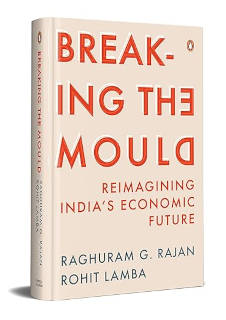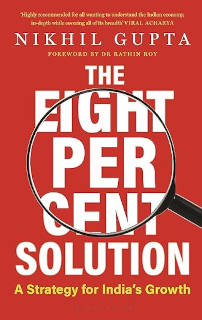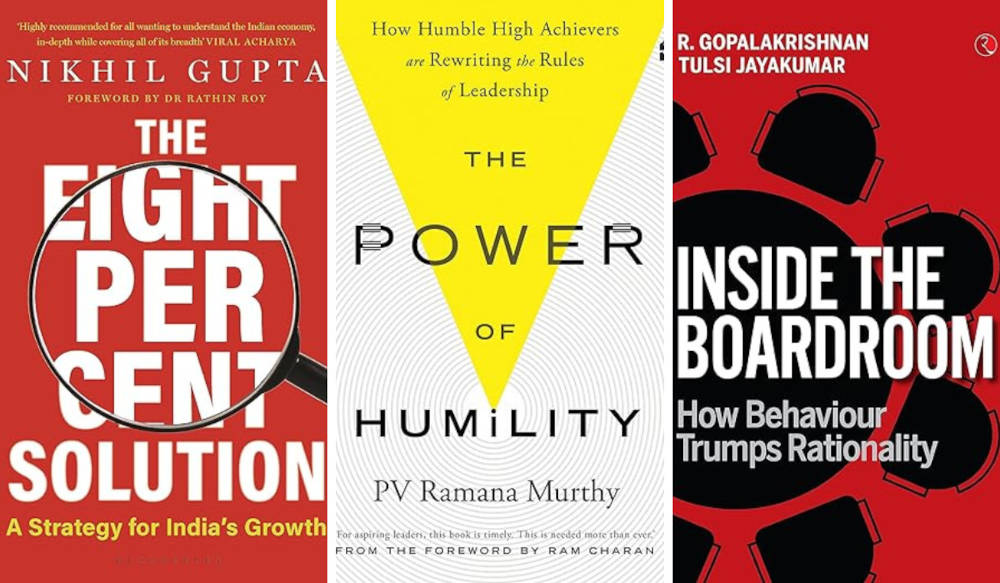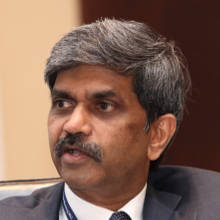My selection this year offers insights on a larger-than-life business leader, what the Indian economy needs, how to think of innovation, humility and other essential skills, and how boards work.
1. Elon Musk by Walter Isaacson

Walter Isaacson is the former head of CNN. Elon Musk is a larger-than-life figure. What he has achieved in his lifetime is stupendous. Isaacson is the da Vinci of biographies. He shows us who Musk is, what works, what doesn’t work. The good thing is that Isaacson does not justify anything that Musk does—he leaves it to the reader to make that call. I found this book to be useful in judging what leadership is and why in some cases the not-so-nice guys win because they are committed to changing the world. This book talks of the combative school days for Musk and how that shaped him to fight for himself all through his life.
2. Breaking the Mould by Raghuram Rajan and Rohit Lamba

This is a book on reimagining India’s economic growth. The authors argue that our biggest asset is our people and we must continue to invest in them in two ways—education and health. The authors believe that India needs a non-hierarchical, open, constructive, irreverent culture to succeed. They believe that India has a natural advantage with English as a medium of schooling and communication. They feel we must not assume that low-cost assembly will lead to higher value-added manufacturing. They believe India should focus on manufacturing services and tech-led, read coding-led, industries.
3. Think Bigger by Sheena Iyengar

Sheena Iyengar is blind and is a professor at the Columbia Business School. Many people write about innovation, and I liked her book because she pits innovation as not a new to the world type of product or service but more a combination of existing things that are applied to new industries. She has a great example in Ford Motor T where Henry Ford learnt of assembly manufacturing from meat packing and a lacquer paint from the cheapest paint source which was available only in black. Her belief is that good innovation solves a problem for the consumer or society.
4. Hidden Potential by Adam Grant

Adam Grant is one of the thought leaders of modern management. Grant argues that some people have innate capabilities that makes them shine but many others traverse tough paths to get to where they are and that must be celebrated. His dictum is that success and progress depend less on how hard you work and more on how fast you learn. He also opines that your success is not about your natural talent as much as it is about your character. Grant has riveting examples from the classroom to the board room to the Olympics and the NBA and NFL.
5. The Power of Humility by Dr PV Ramana Murthy

Management literature talks about EQ and soft skills. Ramana Murthy delves into humility as a distinct advantage for leaders who have it. Humility as we all know is not thinking less of yourself as much as thinking of yourself less. Murthy interviewed several leaders on this topic, some of whom need not be paragons of humility. However, to Murthy’s credit, he gives us two frameworks to think about—APPLE (Appreciative, Path Showing, Positive, Lightheartedness and Evolution) and IMAGE (Intensity, Mindful Excellence, Ahead of one’s time, Gratitude, and Emotional Connect.)
6. Inside the Boardroom by R Gopalakrishnan and Tulsi Jayakumar

India has the maximum number of listed companies in the world at 5,200, however, our governance needs to get better. We all think that the boardroom is a place for rational facts and discussions. Gopalakrishnan has been on 37 boards in all possible board capacities. The authors explain why behaviour is more important and how every board member should have judgement. The authors argue that boards work on weak signals in most cases and hence it is difficult for them to call issues quickly. Boards do their due diligence and end up in a better spot. Being a dissenting voice on a board requires courage and a moral compass. Boards must work with a compass and not a map.
7. The 10 New Life Changing Skills by Rajesh Srivastava

There is enormous debate on skills and a lot of numbers being quoted. It is estimated that 25% of current jobs and 40% of current skills will be extinct in the next 24 months. AI will only accelerate this. The shift to skills is already happening; we see several skill-based courses in continuing education. LinkedIn reported that job listings requiring no formal degree have gone up 90% this year. The author discusses creativity, problem solving, innovation and creativity as necessary skills. The World Economic Forum has listed complex problem solving, critical thinking and creativity as must-have skills for the future.
8. The Eight Per Cent Solution by Nikhil Gupta

The projections on India’s GDP border from the rational to the ridiculous. Nikhil Gupta, with a vast store of numbers and insights, offers us his view on the macro economy and consumer trends. He argues that we need to create millions of jobs and build infrastructure for education, health and more for the people. He argues that India’s consumption is determined by consumers, savings/investment, and externa trade. Gupta is a master of numbers and weaves a cogent argument from them. For example, India has achieved its fiscal deficit target only once so far—in 2008.

